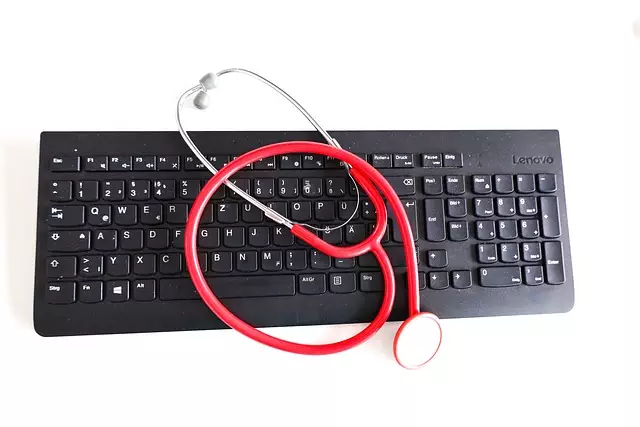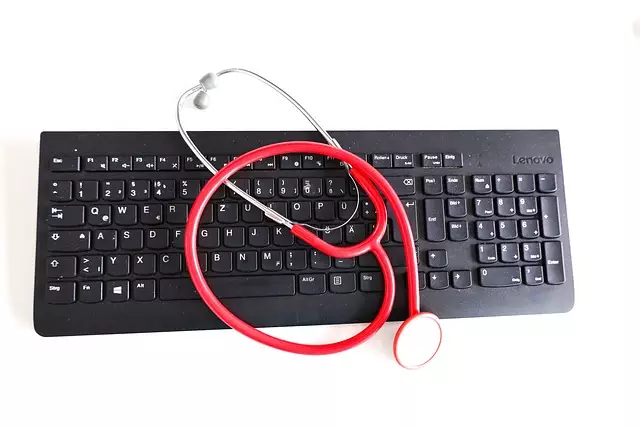Remote semaglutide therapy through online consultation is a growing trend in healthcare, leveraging technology and personalized medicine to improve access and convenience. Patients with type 2 diabetes or obesity can receive specialized treatment from home, eliminating geographical barriers and mobility issues. Healthcare providers use digital tools like telemedicine platforms and mobile apps to monitor progress, adjust dosages, and offer ongoing support, enhancing care continuity and reducing travel times. Strategic monitoring strategies, including real-time feedback based on individual responses, improve medication adherence and treatment outcomes, especially beneficial for rural or underserved areas. Effective patient selection and integration of digital health tools like mobile apps and online portals empower individuals to actively participate in their care, leading to improved health outcomes.
Remote semaglutide therapy management is a growing trend in healthcare, offering unprecedented access and flexibility. This article explores the burgeoning field of remote care for semaglutide, focusing on how online consultations bridge the gap in healthcare access. We delve into the benefits of virtual care, patient selection criteria, implementation strategies, and future perspectives using digital health solutions to enhance patient outcomes. Discover how telemedicine is revolutionizing semaglutide management.
Understanding Remote Semaglutide Therapy: A Growing Trend

Remote semaglutide therapy is a growing trend in healthcare, enabled by advancements in technology and a shift towards personalized medicine. This innovative approach allows patients to receive specialized treatment for conditions like type 2 diabetes or obesity through online consultation for semaglutide, eliminating the need for frequent in-person visits. With remote therapy, healthcare providers can monitor patient progress, adjust medication dosages, and offer ongoing support using digital tools such as telemedicine platforms and mobile apps.
The benefits of remote semaglutide therapy are significant, including improved access to care, increased patient convenience, and potential cost savings for both patients and healthcare systems. Online consultation for semaglutide enables patients in rural or underserved areas to gain access to specialized care they might otherwise not have had. Moreover, this approach can enhance medication adherence and treatment outcomes by providing real-time feedback and adjustments based on individual patient responses.
Online Consultation for Semaglutide: Bridging the Gap in Healthcare Access

In today’s digital era, online consultations for semaglutide therapy are revolutionizing healthcare access. This innovative approach allows patients to receive expert medical advice and management from the comfort of their homes, bridging the gap between geographical locations and limited mobility. Through secure video conferencing platforms, healthcare professionals can conduct thorough assessments, discuss treatment plans, and monitor patient progress without the need for in-person visits.
By leveraging online consultation for semaglutide, patients with chronic conditions can maintain consistent care and avoid the challenges associated with traditional healthcare delivery. This method enhances accessibility, reduces travel time, and eliminates barriers to receiving specialized treatment. As a result, it fosters better patient engagement, improved adherence to therapy, and ultimately, better health outcomes.
Benefits of Virtual Care for Semaglutide Management

The rise of virtual care has significantly transformed the way healthcare services are delivered, especially in the management of chronic conditions. For semaglutide therapy, an online consultation approach offers numerous advantages. Patients can conveniently access medical expertise from the comfort of their homes, eliminating the need for frequent in-person visits. This is particularly beneficial for individuals with busy schedules or those living in remote areas.
Virtual care enables healthcare providers to monitor patients’ progress remotely, adjust semaglutide dosages as needed, and offer personalized guidance through telemedicine sessions. Online consultations also facilitate better patient engagement and adherence to treatment plans. With real-time communication, patients can promptly address concerns, ensuring optimal management of their semaglutide therapy and overall diabetes care.
Patient Selection and Eligibility Criteria for Remote Therapy

Patient selection is a crucial aspect of successful remote semaglutide therapy management, especially considering the unique nature of this medication and its administration. Eligibility criteria for online consultation and treatment should be clearly defined to ensure patient safety and optimal outcomes. Ideal candidates are typically those with a good understanding of the medication’s purpose and a commitment to adhering to the prescribed regimen.
Factors such as age, overall health status, previous medical history, and current medications can influence eligibility. For instance, patients with complex comorbidities or those taking multiple medications may require more intensive monitoring. Telehealth platforms offering online consultation for semaglutide therapy should also consider the patient’s technological proficiency to ensure effective communication and adherence during remote management.
Implementation Strategies for Effective Remote Semaglutide Monitoring

Effective remote semaglutide therapy management relies on strategic implementation of monitoring strategies. One key approach is to leverage online consultations, enabling healthcare providers to remotely guide patients through their treatment journey. Through video conferencing and secure messaging platforms, doctors can regularly assess patient progress, adjust dosage as needed, and provide real-time feedback, fostering a continuous care experience despite physical distance.
Additionally, integrating digital health tools such as mobile apps or online portals allows patients to track their semaglutide administration, record dietary intake, and monitor key health metrics like blood glucose levels. These platforms facilitate open communication between patients and healthcare teams, empowering individuals to actively participate in their care and ensuring timely interventions when necessary.
Future Perspectives: Enhancing Patient Outcomes with Digital Health Solutions

In the future, digital health solutions hold immense potential to revolutionize remote semaglutide therapy management. Online consultation platforms can provide patients with convenient access to healthcare professionals, enabling regular monitoring and adjustments to their treatment plans. This shift towards telemedicine not only improves patient outcomes but also enhances medication adherence by offering flexible, personalized care from the comfort of home.
Digital tools can facilitate ongoing communication between patients and providers, incorporating remote measurements like glucose tracking via interconnected devices. Such innovations can help in early detection of adverse events or suboptimal therapy responses, allowing for timely interventions. By integrating these solutions into standard care protocols, healthcare systems can better support individuals receiving semaglutide treatment, ultimately leading to improved health outcomes and a higher quality of life.
